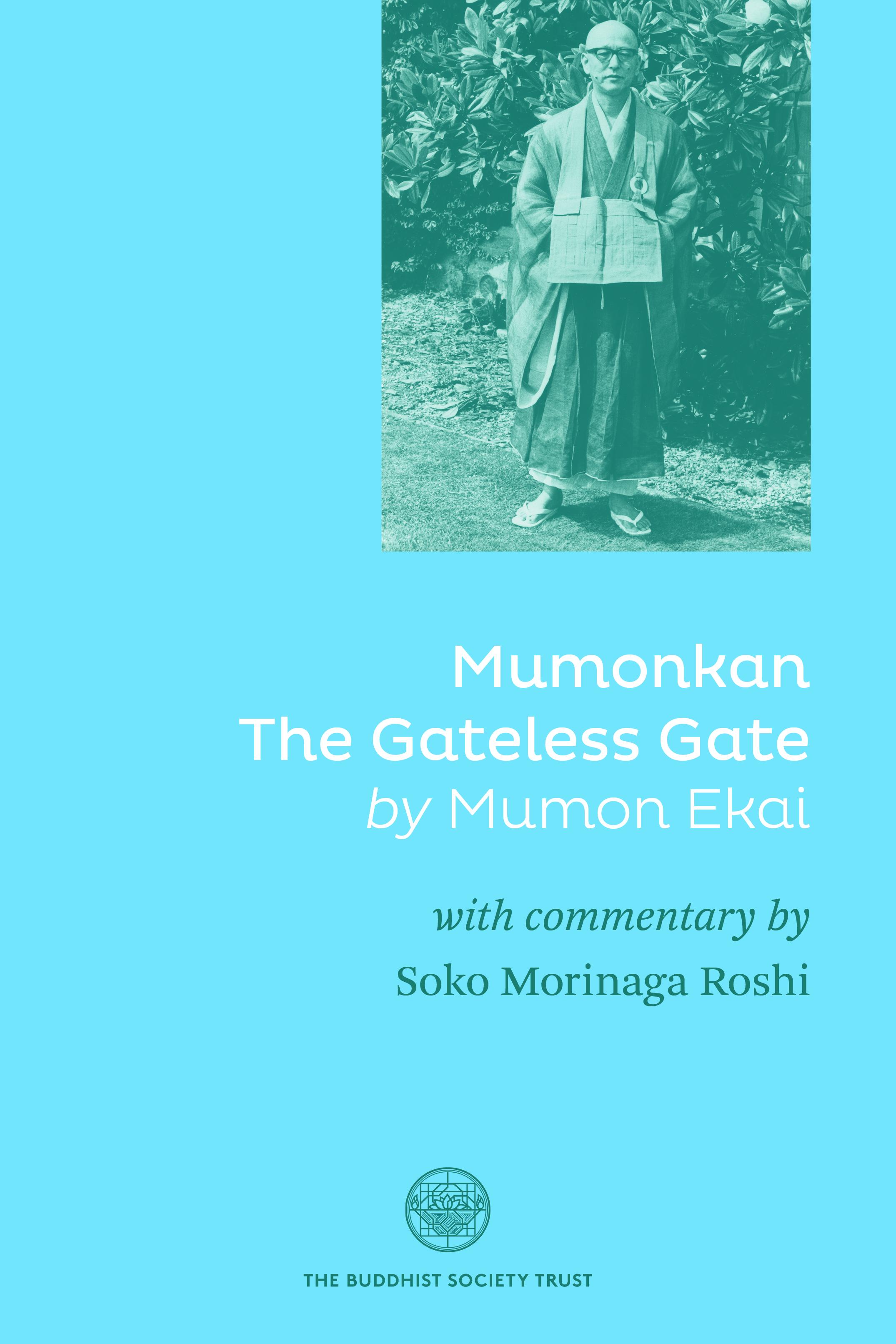Mumonkan: The Gateless Gate by Mumon Ekai, with commentary by Soko Morinaga Roshi
Book Extract
Soko Morinaga Roshi describes what it is like to experience the passions in a state of emptiness.
 ©
©
CASE 1 JOSHU’S MU
A monk asked Joshu, ‘Does a dog have Buddha-nature?’ Joshu said, ‘Mu.’
SOKO ROSHI’S COMMENTS
For listening to teisho, both body and heart need to be relaxed, ready and open to receive. When a cup is full, or the heart is filled, there is no room for anything new to enter.
I became a monk because I had lost the sense of any purpose to my life and was spiritually drifting. Since then, 40 years have passed. As I see it, these days sadness, grief and pain has by no means disappeared. Every day brings both happiness and pain; however, they are not problems. If you look out at the landscape, there is no problem; there are just trees, grass, clouds. Yet people create problems out of these, like it is cloudy, or the trees are growing too close, or perhaps even the fact that grass is too green! In a letter I recently received, the writer said that he could not grasp how Buddha-nature can be inherent in trees or grass. Why? If trees and grass, or a desk are endowed with Buddha-nature, why is it that these, unlike human beings, unlike the writer himself, do not feel anguish?
My answer to the person looking at the trees, at the grass, or at the desk, would be that if they really want to make a problem out of it, this is the way to do it: not to wonder why trees etc., do not feel pain or anguish, but rather to ask why it is that I, endowed with the same Buddha nature as they have – why is it that I feel anguish? Why don't I think of my own situation or my own heart, rather than that of the trees, grass or the desk? Why, for example, instead of really trying to understand myself, do I try to understand Zen Buddhism or the Buddha nature of the desk? The same mistake is what our koan today is concerned with.




